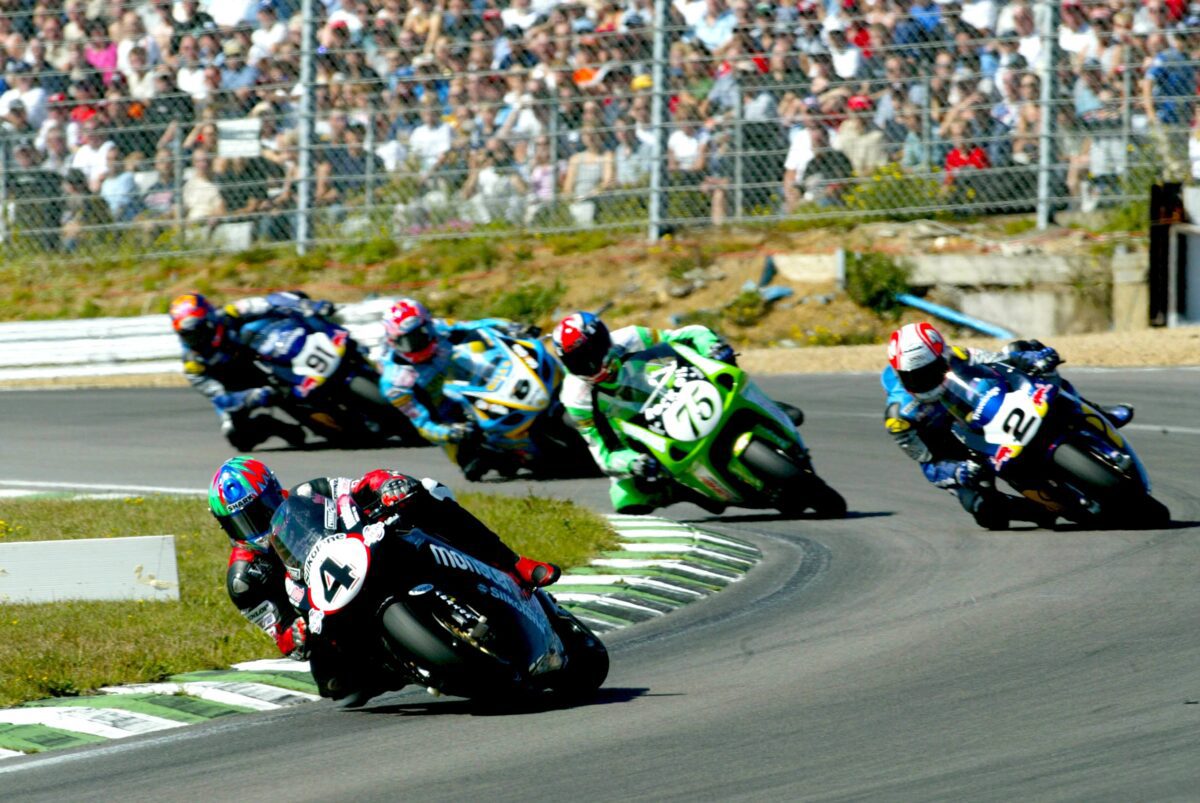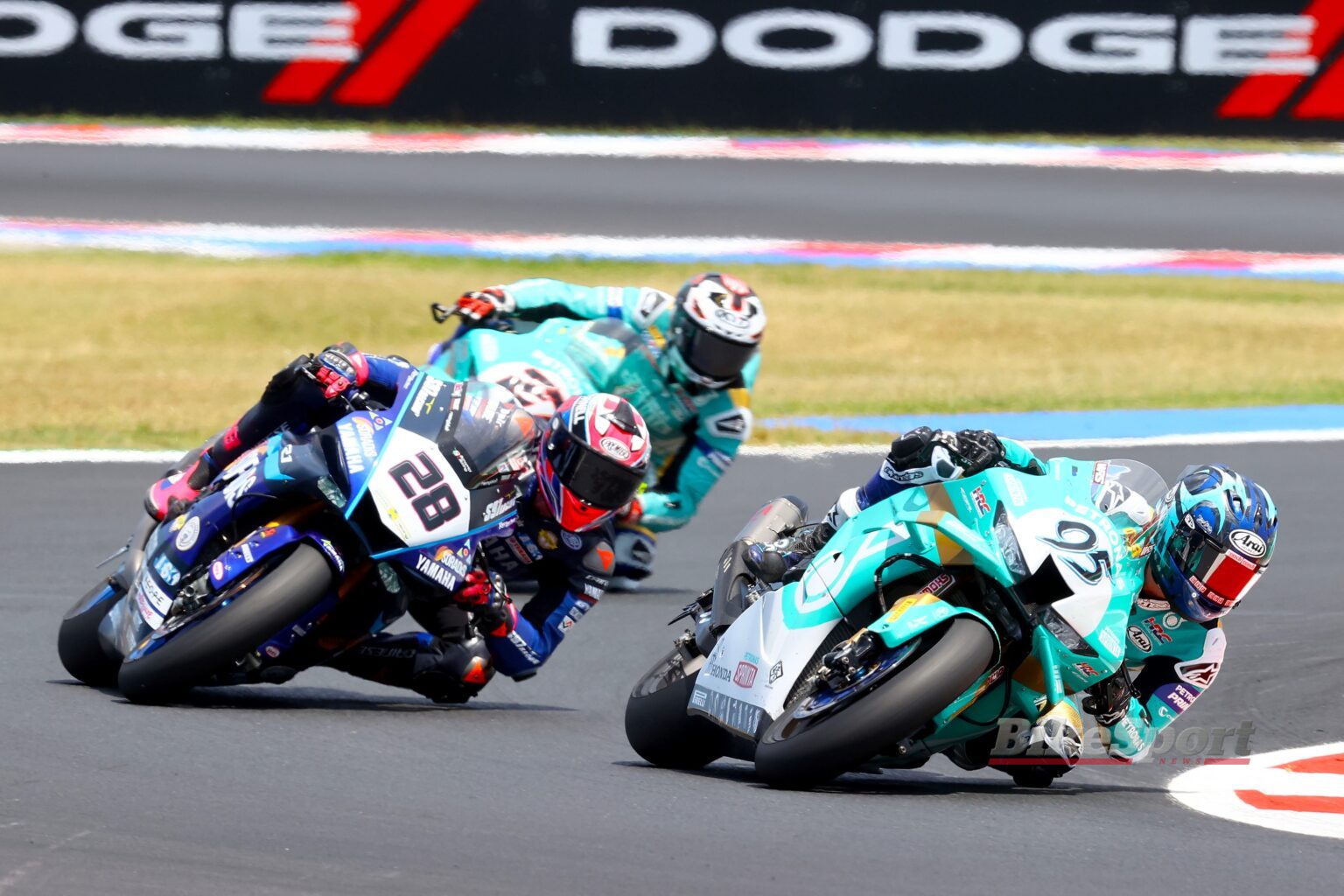Tarran Mackenzie’s decision to step back from his WorldSBK ride brings to an end a dissatisfying period on the world stage that failed to live up to the high expectations of his reputation.
After two-and-a-half seasons - one in WorldSSP, the rest in WorldSBK - as part of the MIE Racing Honda team, Mackenzie comes away with just a single weather-assisted victory in the intermediate class to his name.
However, that victory - on a damp day in 2023 at Most - was a success amid a sea of point-less finishes, while his Superbike record was limited to just a single top ten finish. In short, they were results that don’t befit Mackenzie’s status as a BSB title-winner.
Much can be attributed to the sheer lack of competitiveness of his machinery. With Honda going the long way about (and spending a fortune on) turning its factory bike into a contender with indifferent success, the collateral was MIE Racing being stuck with uncompetitive equipment on a much smaller budget.
However, Mackenzie’s troubles are also evidence of a fundamental issue for BSB riders to hit the ground running at WorldSBK level, no matter the bike.
Take Bradley Ray as another example. The 2022 British Superbike Champion cut a disappointing figure during two seasons of WorldSBK aboard the privateer Motoxracing Yamaha R1, the Briton muddling around the outer reaches of the points for much of that time.
The results weren’t enough to keep him on the grid in 2025, Ray returning to a BSB championship he is leading after three rounds.
This year Ryan Vickers is the latest rider to tread a path well worn from BSB to WorldSBK, but despite a best finish last time out at Misano, he has spoken openly about the difficulties of adapting between the series, going as far as to describe his Ducati as the ‘worst bike you could possibly ride’ if it’s not set-up properly.
"The most difficult thing for me as a rider is not just trying to ride around problems,” he told WorldSBK.com. “In BSB the electronics are very basic, whereas with WorldSBK, electronics are set up corner by corner, so you can pretty much make the bike have a perfect setup for every corner in the track.
"In BSB, I spent 5 or 6 years riding round on bikes where you know the bike isn't going to be perfect in all of the areas and you learn to ride around problems.
“It’s a good skill to have, but at this point it's held us back a little bit because as soon as you ride slightly different on the WorldSBK bike, the electronics automatically adapt to how you're riding, and it can cause things to not work correctly."

More wild shot than wild card
Once upon a time the British national series was a prime proving ground for fresh Superbike talent, breeding the likes of Jonathan Rea, Cal Crutchlow, Leon Haslam and Tom Sykes, while Shane Byrne and Neil Hodgson famously upset the regulars with stunning victories during wild-card appearances.
The reason? Like-for-like machinery.
However, a split in interpretation of the regulations during the 2010s would see WorldSBK commit to using electronics, while BSB switched to a stripped back model that it maintains to today.
The move means that not only do BSB contenders infrequently opt to go up against the world’s best as wild-cards anymore, it has impacted the flow of talent attempting to make the transition.
WorldSBK’s supposed reliance on costly self-developed electronics have been the source of contention in the top tier series but - crucially - the key players are in favour of it. In fact, it has been rumoured that Ducati would be prepared to quit the championship if this was to change.
However, with electronics becoming ever more sophisticated in the pursuit of world championship success, the gap is therefore widening between riders who use electronics in racing - such as those at grand prix level - and those who don’t, like BSB graduates.
It’s not just the path to WorldSBK that is being affected by BSB’s move to rely less on electronics. Rory Skinner’s foray into Moto2 lasted just a single season as he struggled to get to grips with the machinery, while an increasing number of young talent are siphoning themselves to race in Spain as part of their ambitions to get on the grand prix stage instead.
Beyond Ray and Mackenzie, a look at Leon Haslam - a runner-up at WorldSBK level - openly struggled with the electronics upon his return to the series from BSB in 2019. Only 2020 runner-up Scott Redding bucks this trend though he spent much of his career using electronics at grand prix level.
That’s not to say BSB should change its strategy to help riders make the switch and join the likes of Rea, Sykes et al. in the annals of WorldSBK history.
In fact, the move to a standard ECU has gone a long way to reducing costs, tightening up competition and increasing grid numbers for the series.
But the days of WorldSBK being a natural career progression for BSB riders are seemingly numbered and that too could prove detrimental for the series in its bid to attract fresh talent in future…


